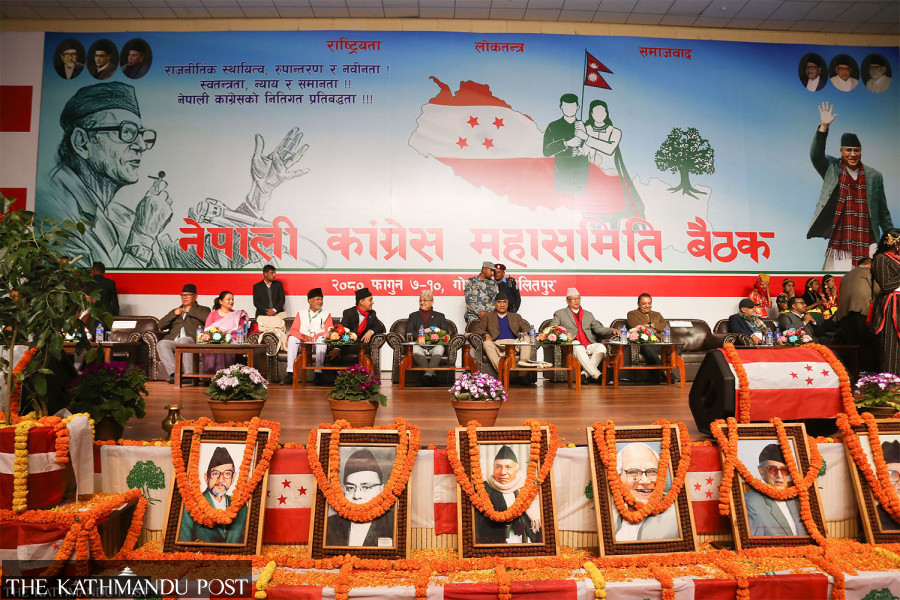Editorial
Amid the cacophony
NC Mahasamiti has brought up vital issues that need more debate.
The Nepali Congress General Council Meeting, or the Mahasamiti Baithak, was a cacophonous affair. This comes with it being a party with a slightly better sense of internal democracy compared to the other two in the league of the Big Three in the country. Its competitors are basically one-man shows—the CPN-UML and the Maoist Centre have yet to think of a second-generation leader who would replace KP Sharma Oli and Pushpa Kamal Dahal. In the Congress, though, even the leaders who go against the president get some visibility. And that is the reason the grand old party’s grand meeting looked chaotic, and mostly for a good reason—debate, after all, is the lifeline of a democracy.
Amid the chaos and the cacophony, one major issue that stood out was General Secretary Gagan Thapa’s call for the party to go solo in the upcoming parliamentary elections. Thapa’s proposal was one of the most debated issues during the meeting, and rightly so. At its heart, it calls for the Congress to re-examine its very outlook to democratic means. In participatory democracy, elections mean a competition of ideas and ideologies, often on the opposite ends of a spectrum. Ideology is the moot point that should not only guide how people choose which leader or which party leads them, but it is also one that should guide the future of the country. At present, what we see is a marriage of strange bedfellows only for the sake of winning elections and forming a government.
Thapa’s call also brings into question the very significance of continuing with the current coalition that had come into force at a specific moment in history. When the then Prime Minister KP Sharma Oli dissolved Parliament twice owing to his failure to keep the then Nepal Communist Party (NCP) intact, political parties and leaders, including Deuba of the Nepali Congress, Dahal of the NCP and Madhav Kumar Nepal of the NCP, had come together to save the parliamentary process itself. The coalition then had the task of forming a government under Deuba for the rest of the term, which it completed dutifully. Had the coalition partners stayed true to the spirit of participatory democracy, the coalition should have ended there. Instead, as if trying to protect themselves from a predator, they continued to stick together long after the moment had passed, and Thapa’s proposal brought a much-needed jolt to the party that had become too cosy in the comfort of the coalition.
Another significant development is the growing call within the Congress to re-establish Nepal as a Hindu state. Congress Central Committee member Shankar Bhandari is learnt to have submitted a letter, signed by 1,063 members, to party president Sher Bahadur Deuba for a return to the pre-2007 days when Nepal was a “Hindu Rashtra”. Notably, the number of the members signing Bhandari’s letter was just 717 in 2019. This shows a clear rise in the number of the Congressis who wish to return to the old days, but the party president has, at least for the time being, pushed back such calls, citing “unfavourable” conditions for a return to a Hindu state. In the coming days, especially as the elections get closer, Deuba might have more convincing to do if the voices supporting a return to Hindu Rashtra grow louder. Again, it should be a question of the party’s ideological standpoint rather than an electoral strategy, and the party leadership would do well to hold on to its stand on secularism.




 13.12°C Kathmandu
13.12°C Kathmandu














